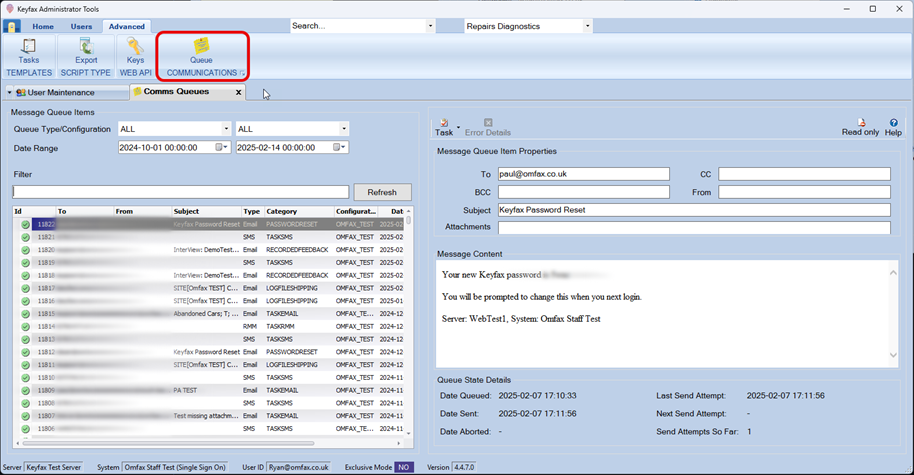8 February, 2015
Working Smarter with Intelligent Diagnostics
How can you working smarter with intelligent scripting diagnostics?
Social housing contact centres are in danger of becoming a victim of their own success. In just a few years, they have evolved from an innovative extra to an integral part of the housing provider’s operations, providing a respected and responsive service to residents through a single point of contact. Resident expectations have risen accordingly and the contact centre is now their first port of call for all kinds of queries.
But it’s here that the challenges begin to mount. Residents now expect the contact centre to own and resolve their issues; advisors therefore find themselves facing ever more complex enquiries that require a level of knowledge that is normally found in the specialist departments. To answer these complex enquiries typically involves the advisor either referring the resident on and they end up being passed around or having to make several calls to the subject experts before getting back in contact with the resident.
Add it all up, and what starts as a fine example of advisors and the contact centre going the extra mile ends up as an expensive, slow and involved process that ultimately swamps the contact centre and reduces its effectiveness.
Work smarter, not harder
Superficially, the answer might seem to be to increase advisor numbers or invest in extra training. But in reality, contact centres simply don’t have the budget for that. Those in the public sector are facing well-publicised cuts; those in dedicated social housing organisations are under constant pressure to achieve more with the same. As well as resident expectations growing, organisations are equally keen to use the contact centre to improve their service, help streamline their processes and become more cost-effective and efficient in the use of expensive staff resources.
For the contact centre manager and their team, it is no longer enough to work harder. Instead, it’s time to work smarter.
What social housing contact centres need is a way of enabling their agents to apply their considerable customer service skills to a wider range of calls – without them needing to refer calls to other parts of the organisation to provide the answers. In other words, agents need more information on more subjects literally at their fingertips so that they can resolve more calls faster. It’s here that intelligent scripting provides the answer.
Intelligence at the Advisors Fingertips
Intelligent scripting is already used in a number of contact centres, helping guide advisors through key processes and standard forms. Quite simply, it involves agents being provided with a series of on-screen prompts that guide them through the enquiry process: they are presented with expert guidance and automated access to relevant context-dependent information – customer profiles, asset data, history, service information. In this way, advisors are equipped with the specialist guidance to deal with subjects about which they may have only general knowledge. The ‘intelligence’ is in the system and for advisors working on the front line in social housing, the potential is enormous. The impact of this on all parties is immense.
Residents receive a better service at first point of contact – there is no need to call back or wait for a visit or to make an appointment.
Any home visit is better prepared, with much less likelihood of having to return for a second visit. Both of these help reduce the overall costs to the housing provider.
From the contact centre perspective, it offers greater satisfaction for the advisor and ultimately increased capacity: advisors are able to manage calls in a structured way, reducing time wasted on irrelevant questions and unnecessary additional calls to other parts of the organisation.
Because all calls are logged in detail, the housing organisation can identify where there are calls that could be avoided through better resident information, or where there are repeat calls or recurring problems.
A question of quality
Of course, all of this depends not only on advisors having access to intelligent scripting, but also on the quality of the information the scripts contain. That’s why intelligent scripting for social housing contact centres needs to be based on both the expert input of housing professionals, qualified trades-people and business analysts and the practical experience of those working in customer-facing roles within the sector: agents, managers, on-site caretakers. That’s how Omfax developed the knowledge database that goes into our widely used tenancy and repair guides, and which in turn, formed the basis for our intelligent scripting solution, Keyfax Inter•View.
But even more importantly, Inter•View is designed to evolve, to include new content and services – whether dealing with tenancy, property or more general housing enquiries – and to constantly align to a social housing organisation’s specific needs. Today we draw on the input from more than 60 social housing providers, housing associations and local authorities who use Inter•View to ensure that the intelligent scripts that advisors are using are as accurate and helpful as possible.
That way, even as the contact centre becomes an even greater success and is asked to do more (with the same budget), these contact centres are ready, equipped and able to rise to the challenge.
If you’d like to discuss how Keyfax can help you achieve more for your tenants and lease-holders please contact us, or if you are an existing customer, arrange a chat with your account manager.





